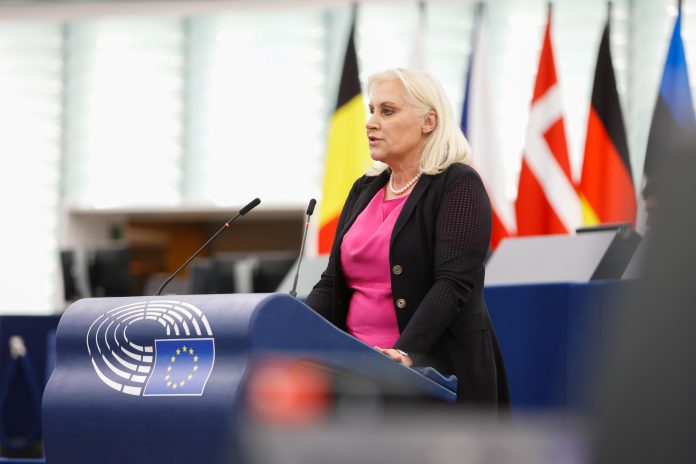Parliament voted to provide up to €100 million in Macro-financial Assistance (MFA) to North Macedonia to help the country cover part of its funding needs in 2023.
On Tuesday, MEPs endorsed the Commission’s proposal to give the government of North Macedonia support to stabilise the country’s economic situation by 536 votes, 38 against, with 23 abstentions.
The aid would be disbursed in two tranches, contingent upon progress made in implementing policy measures agreed upon in a Memorandum of Understanding between the EU and North Macedonia. They would likely focus on areas such as fiscal governance, tax policy, the management of public investment, public-private partnerships, improvement of business environment, transparency in state aid, energy efficiency, judiciary reform, and the fight against corruption.
In addition, the assistance is subject to North Macedonia maintaining a satisfactory performance in the implementation of an International Monetary Fund (IMF) programme.
After a partial recovery from the pandemic-driven recession, North Macedonia now faces substantial impacts from Russia’s war against Ukraine. Amid tightening global financial conditions, escalating energy costs, and higher-than-expected losses by the domestic state-owned electricity producer, North Macedonia requested macro-financial assistance (MFA) in 2022.
Rapporteur Angelika Winzig (EPP, AT) said: “North Macedonia was and still is hit hard by Russia’s war of aggression against Ukraine. They are facing large external debt repayment needs this year. With this assistance in form of loans we are sending a sign of European solidarity towards North Macedonia and the Western Balkan countries.”
North Macedonia is an EU candidate country, which formally opened accession negotiations with the EU in July 2022.
Macro-financial Assistance is part of the EU’s wider engagement with neighbouring and enlargement partners, and is intended as an exceptional crisis response instrument for partners experiencing severe balance-of-payments problems. It demonstrates the EU’s solidarity with these partners and the support of effective policies at a time of unprecedented crisis.
Upon approval of the aid by the Council of the EU, it will be published in the Official Journal of the EU and apply on the day following its publication.

